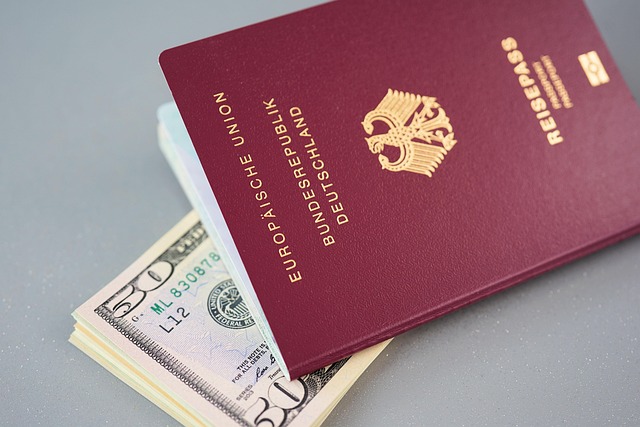Golden Visa in Portugal: A Guide to Europe
Portugal's Golden Visa program has become one of the most sought-after residency-by-investment schemes in Europe, offering non-EU citizens a pathway to European residency and potential citizenship. This program allows investors and their families to live, work, and travel freely within the Schengen Zone while enjoying Portugal's high quality of life, favorable tax regime, and access to excellent healthcare and education systems.

Portugal’s Golden Visa program represents a strategic opportunity for individuals seeking European residency through investment. Since its launch in 2012, the program has attracted thousands of investors from around the world, particularly from China, Brazil, the United States, and the Middle East. Understanding the requirements, benefits, and recent changes to this program is essential for anyone considering this pathway to European residency.
What Is the Golden Visa Program in Portugal
The Portuguese Golden Visa, officially known as the Authorization of Residency for Investment Activity (ARI), is a residency-by-investment program that grants non-EU nationals the right to live in Portugal and travel freely throughout the Schengen Area. Unlike many residency programs, the Golden Visa requires minimal physical presence in Portugal—just seven days during the first year and 14 days in subsequent two-year periods. This flexibility makes it particularly attractive to international professionals and entrepreneurs who wish to maintain their business activities elsewhere while securing European residency. After five years of maintaining the investment and meeting residency requirements, Golden Visa holders can apply for permanent residency or Portuguese citizenship, which grants full EU citizenship rights.
Investment Options and Requirements for the Golden Visa
Portugal offers several investment routes to qualify for the Golden Visa, though recent legislative changes have modified some options. As of 2023, real estate investments in coastal areas and major cities like Lisbon and Porto are no longer eligible, with the government redirecting investment toward the interior regions and the Autonomous Regions of Azores and Madeira. Current investment options include capital transfer of at least €1.5 million into Portuguese bank accounts or approved investments, investment in research activities of at least €500,000, creation of at least 10 jobs in Portugal, or investment in investment funds or venture capital of at least €500,000 focused on Portuguese companies. Real estate investment remains possible in designated low-density areas with a minimum value of €500,000, or €400,000 for properties over 30 years old or in urban regeneration areas. Cultural heritage investments of at least €250,000 also qualify. Applicants must also have a clean criminal record, hold valid travel insurance, and demonstrate sufficient funds to support themselves and their family members.
Benefits of Obtaining a Portuguese Golden Visa
The Portuguese Golden Visa offers numerous advantages beyond simple residency rights. Holders gain visa-free travel access to all 27 Schengen Area countries, which includes most of Western and Central Europe. Family reunification provisions allow investors to include their spouse, dependent children, and even dependent parents in the application. Portugal’s Non-Habitual Resident tax regime can provide significant tax benefits for new residents, including potential exemptions on foreign-sourced income for ten years. The country offers excellent healthcare facilities, internationally recognized educational institutions, and a safe, welcoming environment with a growing expatriate community. Additionally, Portuguese citizenship, obtainable after five years, ranks among the most powerful passports globally, offering visa-free or visa-on-arrival access to over 180 countries. The investment itself can also generate returns, whether through rental income from real estate or returns from fund investments.
Recent Changes and Future of the Program
The Portuguese government has implemented significant reforms to the Golden Visa program to address housing affordability concerns and redirect investment to less developed regions. The October 2023 changes eliminated real estate investment options in Lisbon, Porto, and coastal areas, focusing instead on interior municipalities and autonomous regions. These modifications reflect the government’s commitment to balanced regional development and addressing local housing market pressures. Despite these changes, the program remains active and continues to attract substantial investment. Prospective applicants should stay informed about potential future modifications, as European Union pressure and domestic policy considerations may lead to additional adjustments. The Portuguese Immigration and Borders Service (SEF), now replaced by the Portuguese Agency for Integration, Migration and Asylum (AIMA), continues processing applications, though processing times have experienced delays due to administrative restructuring and high application volumes.
Application Process and Timeline
Applying for a Portuguese Golden Visa involves several stages and typically requires professional assistance from immigration lawyers and consultants. The process begins with making the qualifying investment and gathering required documentation, including a valid passport, proof of investment, criminal record certificates from countries of residence for the past five years, and proof of health insurance. Applicants must open a Portuguese tax identification number (NIF) and bank account before completing the investment. Once documentation is prepared, the application is submitted to AIMA along with applicable fees. Initial processing can take six to twelve months, though recent administrative changes have extended timelines in some cases. Upon approval, applicants receive a residency permit valid for one year, renewable for successive two-year periods as long as the investment is maintained and minimum stay requirements are met. After five years, Golden Visa holders can apply for permanent residency or citizenship, provided they demonstrate basic Portuguese language proficiency and maintain ties to the country.
Cost Considerations and Investment Returns
Understanding the full financial commitment of the Golden Visa program is essential for prospective applicants. Beyond the minimum investment amounts, applicants should budget for various associated costs. Application fees currently stand at approximately €5,000 for the main applicant, with additional fees of around €2,500 per family member. Legal and consultancy fees typically range from €10,000 to €20,000 depending on the complexity of the case and services required. Real estate transactions incur additional costs including property transfer tax (IMT) of up to 6.5 percent, stamp duty of 0.8 percent, and notary and registration fees. Ongoing costs include residency card renewal fees every two years, annual property taxes (IMI) for real estate investments, and potential property management fees if generating rental income.
| Investment Type | Minimum Amount | Potential Annual Return | Additional Considerations |
|---|---|---|---|
| Real Estate (Interior Regions) | €500,000 | 3-5% rental yield | Property taxes, maintenance costs |
| Capital Transfer | €1,500,000 | Varies by investment | Bank fees, currency exchange risks |
| Investment Funds | €500,000 | 4-8% estimated | Management fees, market risks |
| Job Creation | 10 jobs minimum | Business dependent | Ongoing employment obligations |
| Research Activities | €500,000 | Non-financial returns | Must be approved institutions |
Prices, rates, or cost estimates mentioned in this article are based on the latest available information but may change over time. Independent research is advised before making financial decisions.
Comparing Portugal to Other European Golden Visa Programs
Portugal’s Golden Visa exists within a competitive landscape of European residency-by-investment programs. Greece offers a similar program with lower real estate investment thresholds starting at €250,000, though with more restrictive residency requirements. Spain’s Golden Visa requires a minimum real estate investment of €500,000 but demands more frequent physical presence. Malta offers both residency and direct citizenship programs, though at significantly higher investment levels exceeding €600,000 for residency and over €1 million for citizenship. Portugal’s program stands out for its minimal stay requirements, clear pathway to citizenship, and the strength of Portuguese citizenship within the EU. However, recent restrictions on real estate investments have made some alternative programs more attractive for investors specifically seeking property in major urban centers. Each program has distinct advantages depending on individual circumstances, investment preferences, and long-term objectives.
The Portuguese Golden Visa continues to offer a valuable pathway to European residency despite recent reforms. Its combination of flexible residency requirements, family inclusion, pathway to EU citizenship, and quality of life in Portugal makes it an attractive option for international investors. Prospective applicants should carefully evaluate their investment options, budget for all associated costs, and seek professional guidance to navigate the application process successfully. As with any significant investment and immigration decision, thorough research and expert consultation are essential to making an informed choice that aligns with personal and financial goals.



